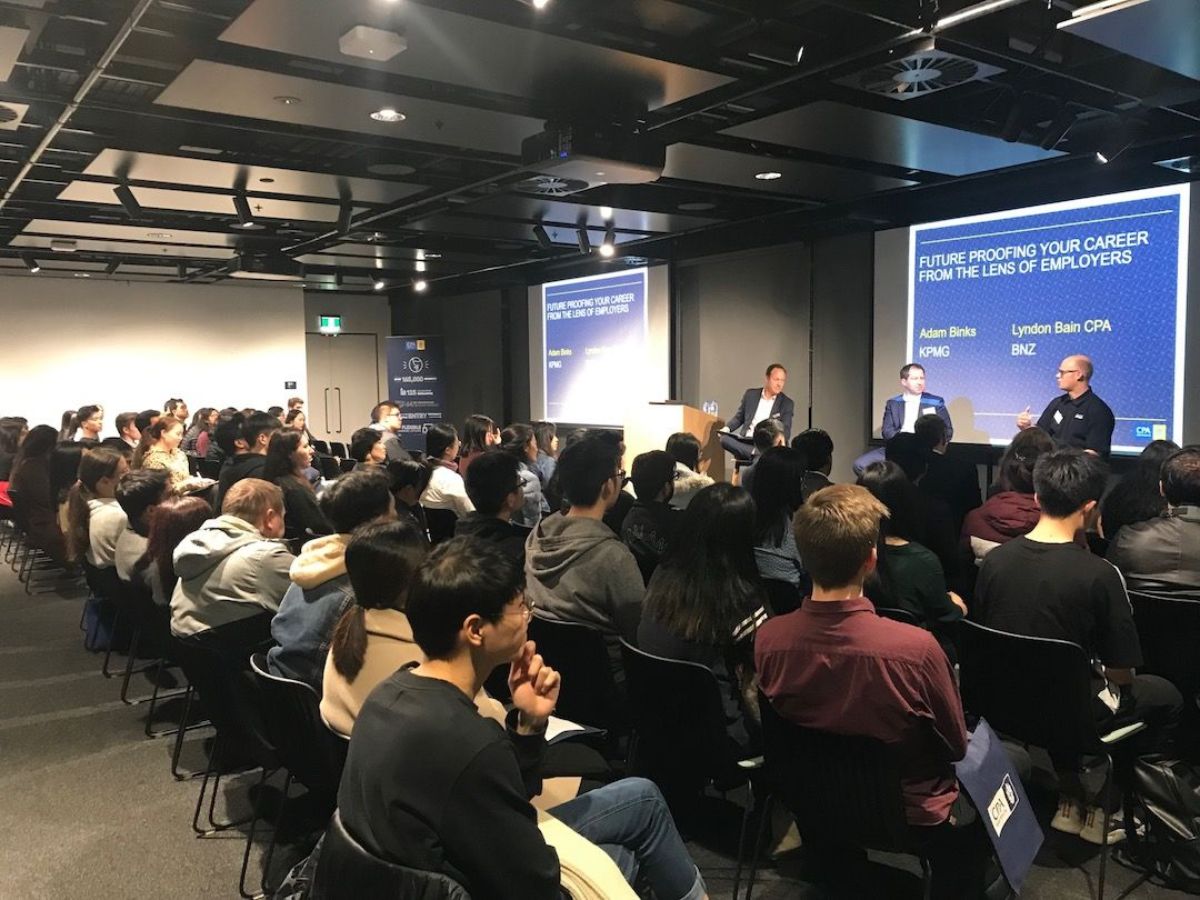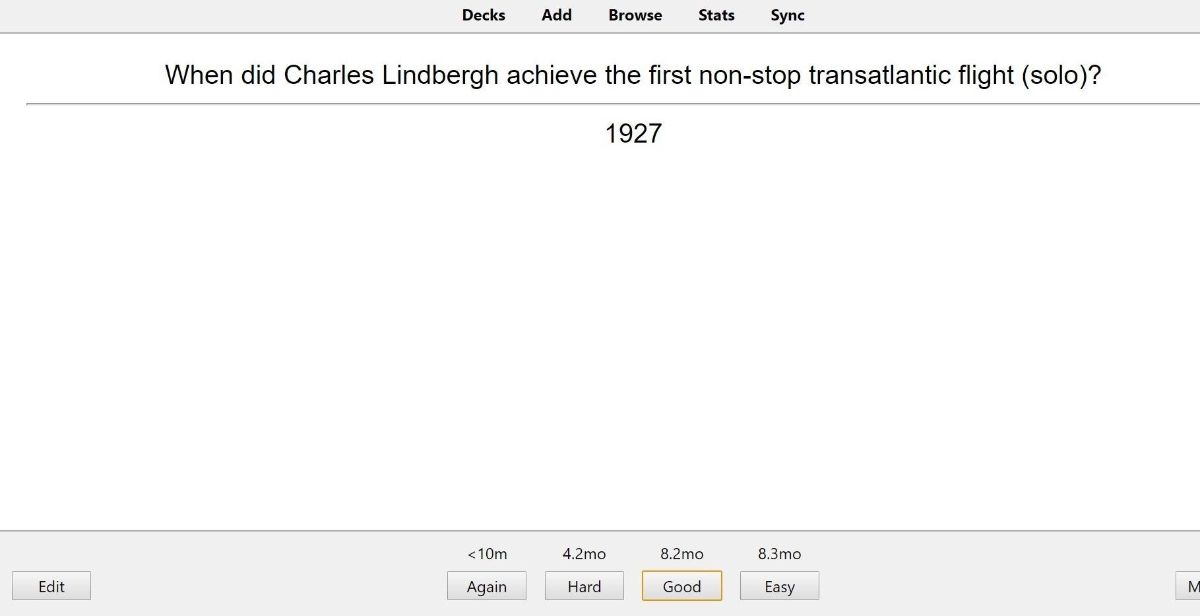About Clearhead
Clearhead is an online, one-stop-shop platform, designed by NZ doctors, that empowers New Zealanders to find the help they need. They help Kiwis understand their symptoms and provides personalised recommendations through an artificial intelligence chatbot.
With a small team of 8 talented individuals, they are looking for a marketing intern to help bring them face to face with everyday kiwis.
Core Values
- Manaakitanga
- Collaboration
- Inspire Excellence
- Be Brave
Marketing Internship – Job Description
What will you get to do?
Clearhead’s ideal marketing intern will help them reach existing and new potential users including 20-40 year olds & corporate partners. You will be experimenting with different marketing strategies & creating content to solidify Clearhead’s user conversion model.
Clearhead believes championing everyday Kiwi’s will be the core driver behind their marketing strategy. Being able to build brand loyalty, increase engagement and activating locals will be a big part of the marketing internship role.
Job Requirements
- Commit 10-20 hours / week (duration of internship to be discussed)
- Experience with data analytics & content creation for digital marketing platforms & mailchimp preferred
- Able to work remotely – access to laptop or computer
- Entitled to work in New Zealand on any valid visa
- Able to begin between now and the upcoming summer break
About You
- You are interested in AB testing with digital marketing platforms e.g. social media & email marketing
- You are highly analytical and pursue data driven optimisation strategies through utilising metrics
- You are interested in developing creative marketing content for a variety of social media channels
- Your communication skills are top notch with the ability to simplify concepts and value propositions
- You are an independent individual who is self sufficient, growth driven and takes initiative without hesitation
- You are a people person who is an equally good listener, observer and relationship builder
- You are value driven and have a passion for social issues
- You are able to work in a small team who value an easygoing, and supportive working culture
How to Apply
Send your CV to [email protected] and show them your experience and most importantly what you’ve done. They encourage applicants to teach them something they can’t teach themselves.
Need help with updating your CV for Clearhead’s marketing internship? Check out our CV 101 blog.
]]>This is a sponsored article by the New Zealand Defence Force.
TL;DR Scholarship by the New Zealand Army. Get up to $40,000 of your course fees reimbursed and a starting salary of $60,050 when you become an Army Officer.
Have you graduated or you’re getting close to graduating but still have no idea what to do after uni? So many of my friends are in the same boat so don’t stress if you feel like you’re the only person without a plan!
The New Zealand Defence Force (NZDF) has a new scholarship opportunity for students. Their Tū Ako Scholarship will help YOU become an Army Officer and it’s so much more than being in a uniform and carrying a gun! From roles in engineering, medical, nursing, legal, communication, dental, and more. They’re looking for you to join them!
Introducing, the Tū Ako Scholarship
What is the Tū Ako Scholarship?
The Tū Ako (higher learning) scholarship is a new scholarship by the NZ Army for tertiary students. A lot of skills you’ve learnt at university could make you the perfect fit in the army and they want to make the decision even easier for you.
What do you get?
Successful applicants will receive a starting salary of $60,050 (that’s a decent graduate paycheck!) when they become an Army Officer. On top of that, they’ll get their course fees reimbursed up to $40,000! You’re pretty much graduating without a student loan and getting an awesome salary!
Who can apply?
The Tū Ako Scholarship is available to all recent university graduates in New Zealand. You can also apply if you’re in the final two years of your study.
How do I apply?
You’ll need to submit an application through the Defence Careers website and complete their recruitment process to make sure you’re suitable for a career in the NZ Army. This includes academic, aptitude and fitness testing; medical and security screening (including a police background check); several interviews and an officer selection board.
Find out more or apply here.
What will I do as an Army Officer?
Officers are the leaders of the New Zealand Army. They are the managers and strategists. Their decision-making skills and problem-solving abilities enable them to plan and execute tasks in wide-ranging conditions. It is their job to earn trust and respect, and to display the strength of character to inspire their soldiers in potentially difficult situations.
Defence Careers website (https://www.defencecareers.mil.nz/army/careers/browse-roles/army-officer/)
What are the perks?
Apart from the awesome salary, you can get:
- Free medical and dental
- 5 weeks of annual leave
- Access to additional compensation and housing allowances
- Defence discounts at selected stores and services
But I would say the best perk is the privilege of being able to serve our country, make great friends for life and honestly, you’ll never be out of shape with all the sports, gyms, and swimming pools available! You can learn more about what’s life like in the uniform at https://www.defencecareers.mil.nz/army/life-in-uniform/.
What happens if I’m selected?
If you’re selected, you’ll have to complete the New Zealand Commissioning Course at Waiouru. The course is designed to produce competent, fit, durable and determined leaders ready to command soldiers here in NZ and overseas on operations.
After you finish the course and graduate as an Officer, you’ll be assigned to a Corps to enter and commence their career as a NZ Army Officer! There are 9 Corps you can enter such as Corps of Royal New Zealand Engineers, Royal New Zealand Army Medical Corps, Royal Regiment of New Zealand Artillery, Royal New Zealand Corps of Signals and New Zealand Intelligence Corps. Huge variety right!
There is no minimum term of employment or return of service for this scholarship.
Convinced? Apply now at Defence Careers.
If I was still studying, I’d definitely consider giving this a shot! How awesome would it be to not have to deal with your student loan, get a great starting salary, and all the perks!
It’s the year 2020.
You’ve got some hard-earned cash stashed away in your bank’s online savings account, earning 0.1% interest. You’ll be lucky to buy even one avocado with your interest at the end of the year, let alone your fav smashed avo’ on toast.
Investing in shares and other financial instruments can boost your saving goals dramatically, and our ‘Student Investing Starter Pack’ aims to help YOU get started. Because even if you’ve been thinking about doing this for a long time, sometimes the hardest part is taking the first step.
Now, the most important thing is to NEVER invest any amount you can’t afford to lose. Investing is a privilege, and if you can look after your day-to-day financial needs whilst having some spare money to make calculated risks on, you’re good to go
Note: Any information provided in our ‘Student Investing Starter Pack‘ is intended to be for general purposes only and should not be considered personalised financial advice or recommendations in any way. You should always make decisions based on your personal financial situation and fully assess the relevant risks of any investments.
Student Investing Starter Pack
Key Steps
- Choose an investment platform
- Choose your shares
- Track and manage progress
- Sell your shares at the right time
1. Choose an Investment Platform
The most important tool you’ll need for investing is the platform you invest with, so here is an outline of two main options for first-time investors in New Zealand. This is what you use to buy and sell shares, manage your portfolio, and review the progress of your investments.
Sharesies

Sharesies is the new Kiwi kid on the block with regards to the investment game, and boy does it look pretty. Their mission is to create the most financially empowered generation by making investing accessible for everyone in Aotearoa. So let’s go through their main features in the form of pros and cons.
| Pros | Cons |
|---|---|
| – Low transaction fees when buying and selling shares; – Elegant and intuitive interface helpful for first-time investors; and – Access to majority of New Zealand shares as well as a selection of ETFs and managed funds. | – Subscription fee based on portfolio size to be paid monthly/yearly; and – They are legally held by a custodian company and this has a range of minor negative (and positive) implications. You still have full rights to your shares’ market value and dividends. |
ASB Securities

ASB Securities has been around for awhile as a tried and trusted investment platform, the Bill English of the industry if you will. As its name suggests, it’s from the bank of the same name and their team used to provide daily business updates on the old 3News (if anyone still remembers those?). Let’s take a dive into the pros and cons of using ASB Securities.
| Pros | Cons |
|---|---|
| – Access to all New Zealand and Australian shares as well as bonds and some ETFs; – Regular in-depth market reports and analyst recommendations on shares; and – Easy banking integration for ASB customers and no need to create an ASB bank account for non-customers. | – Transaction fees which are less cost-effective for smaller and frequent trades; and – Relatively uninspiring online interface although functional for its purpose. |
The Verdict
There really is no outright best investment platform in New Zealand and the choice comes down to your individual circumstances and investment strategy.
However, from a purely fees point of view it may make sense to use Sharesies if your portfolio will be under $3000 or if you will regularly make trades a few times each year. ASB Securities may make more sense if you buy and sell shares in increments above $3000 and up to $10,000, especially if you are likely to hold shares for at least a few years before selling.
There are also a few other options available in New Zealand, including InvestNow, Direct Broking and Hatch. They haven’t been explored in this article because we’re focusing on beginner investors for the New Zealand sharemarket. However, for areas such as international trading, higher value investing, ETFs and managed funds they can be quite good and I would encourage you to explore these options as you gain more confidence and ability.
2. Choose Your Shares

There is never a one-size-fits-all solution for which shares you should select for your portfolio, and it all depends on your investment strategy. If you’re looking for consistent returns it could be worth looking closely at the utilities/electricity industry. A company working with new technologies could be the next big thing and make massive share price gains but could also end up suffering a massive setback. These are just some examples of the various possibilities of investing.
Research, Research, Research!
Do your research on the companies you’re considering. These steps will help you build confidence in the companies you might invest in and detect any red flags to avoid.
Key Things To Research
- Look at the investor section of their websites for past annual reports, long-term business strategy and future financial projections.
- Search up the latest news articles about the company.
- Examine historical share price charts and find out key figures such as dividend yields.
Have Fun! Remember, this is the fun part. You don’t want to drown yourself reading through 200 pages of legal documents when researching but you don’t want to make investing decisions based off a hunch from your friend’s cousin’s stepdad either. Many of the companies listed on the NZX stock exchange are recognisable brands from everyday life. Is there a company you are a die-hard customer of? It could be time to put your money where your mouth is – after a reasonable amount of research, of course.
Shortlist
Whatever you find, it could be helpful to come up with a shortlist of a few companies you think have potential. Once you’ve narrowed things down, make a direct comparison between them to decide on the most promising candidates. You could also follow their price movements closely for a while longer to understand how the shares trade. Finally, decide on one or more shares to buy while also taking into account the fees you’ll get charged for each transaction.
3. Track and Manage Progress

Your chosen investment platform will have a range of tools to help you understand how your investments are progressing. You’ll have the ability to see the total value of your portfolio and the value of individual shares you own. It’s a good idea to check this regularly, but not too much that it drives you crazy. Keep an eye on the news about companies you have shares in. If there’s any important information that comes out, you may have to re-evaluate your position and act quickly.
Companies generally pay two dividends a year, an interim and a final dividend. This is the good stuff you’ve been waiting for. If you’re with Sharesies, the money will be paid into your online wallet for you to withdraw or even re-invest. If you bought shares through ASB Securities, you’ll have this transferred to your bank account.
Tax and Imputation
This is a very important area to understand as it has many implications for your share investments.
When you receive a dividend payment from a company, you will only receive 67% of the gross dividend amount. This is essentially a tax on dividend earnings of 33%. As most students are on a much lower tax rate, often only 10.5%, it is possible to claim back the difference when your tax return is done after the end of the financial year on March 31st.
This means while you’re studying the returns you make from dividends can be higher than after you start working full-time because your tax rate will be higher.
You may also notice imputation credits being attached to the dividends you receive. These will reduce the tax you’re liable for, as the company has already paid tax and this avoids double taxation. So make sure to keep track of these for your tax records at financial year’s end.
CSN and FIN
No, these acronyms aren’t for crime drama TV series if that’s what you were thinking. They’re two very important numbers for legal owners of New Zealand shares.
A Common Shareholder Number (CSN) is a number used to identify individual investors, and is unique to each person. A Faster Identification Number (FIN) is a number which acts as a PIN code when making sharemarket trades. These will be issued to you once you buy your first shares. You should absolutely keep these details safe, secure and avoid revealing them to anyone.
New Zealand shares will be recorded on one of two main share registries, Computershare or Link Market Services. You can log in to their websites using your CSN and FIN, gaining access to important information and documents such as dividend payment statements.
4. Sell Your Shares At The Right Time
This will be the saddest OR most rewarding part of the investing process. Sometimes, there’s no other option than to cut your losses when your shares have been consistently falling in price. On the other hand, you may find that your shares have doubled or even tripled their price in five years’ time, which is the dream for any investor!
Be Sensible
It helps to be sensible when making decisions on when to sell your shares. Do not panic at every negative article about a company or succumb to every sharemarket doomsday prediction in the media, because people make these predictions seemingly every year. Unfortunately sharemarket crashes do happen, as shown by the latest COVID-19 induced recession. It’s a classic example of a sudden and unforeseen event.
The key takeaway is that when things seem to be going unbelievably well, there’s almost always a bad event right around the corner. So don’t be greedy, and cash out when you’ve made a reasonable amount of gains. Waiting till the last moment before the sharemarket crashes is very risky, and by the time you push the sell button it could be too late. It is possible, but incredibly hard to time the market perfectly.
Be Self-Aware
Another important thing is to be aware of your own behavioural tendencies around investing. We are all human. We all have emotions. As much as we try to make our best investment decisions based solely on cold facts and evidence, there’ll always be a mental element clouding our most rational self. There is a much-researched area called loss aversion theory. It states that humans have a tendency to feel the negative impact of losses much more than the positive impact from gains of the same size. So don’t beat yourself up if things don’t go as great as you expected, because even the best investors have bad days.
Invest in Your Life
Sometimes, you will have to make selling decisions based on other things going on in your life. Need a new car? Buying your first home? Liquidating all your assets to travel the world? These are all valid reasons to sell and it’s important to remember that investing is a tool for enhancing the other aspects of your life. Only in the most extreme cases will it become your life itself. If you’re lucky, you may even hold onto the same shares you bought as a student all the way till your retirement. With that, I’d like to officially start the…. #InvestUntilRetirementChallenge
Buy some shares, and hold onto them until you retire. Even if it’s just one singular share you own in the end, it’s the thought that counts. Trust me, an investment made when you’re 21 is gonna age much better than a TikTok made at 21.
Useful Resources & Concepts
Resources
- Investopedia: Encyclopaedia and dictionary of everything finance and investment related. Its videos are also incredibly helpful for understanding complex financial concepts.
- Money King NZ: There aren’t many websites that are dedicated to investing in New Zealand but this one should be all you need. It’s got lots of guides and articles about different areas of investing, as well as some handy spreadsheet tools.
- NZX: New Zealand’s stock exchange has an official website filled with all the information you’d expect from them. Here you can find publicly available information on all the listed companies plus price charts and key financial figures of shares.
Concepts
You don’t need a finance degree to become good at investing but being armed with some basic financial knowledge can certainly help. Our ‘Student Investing Starter Pack’ is not a finance course, so I can only leave a few pointers for extra reading. Homework if you will. So go ahead and click on these links to get the proper definitions and explanations on Investopedia – they will help a lot if you are just beginning to learn about investing 
- Diversification – the financial equivalent of not putting all your eggs in one basket, or investing in multiple companies so when things go wrong with one stock the others will keep things going strong overall.
- Business Cycle – the economy and share prices gradually grow over time before dipping and then restarting the cycle, which tends to repeat roughly every ten years.
- Risk vs. Return – shares which have the potential for a lot of gain can also cause more losses if things go wrong with the company, while there will be a limit to how much you gain from safer investments.
- Dividend Stock – these types of shares are usually in well-established companies that focus on paying consistent dividends at a good rate of return for investors.
- Growth Stock – these types of shares are expected to grow rapidly in price every year and pay little or no dividends, as the company invests in itself to grow further.
- Exchange Traded Fund (ETF) – these investments are essentially a ‘basket’ of multiple shares, which often cover entire markets, industries or countries.
- Mutual/Managed Fund – these investments put money from many people together to invest in a collection of assets, which is managed by professional fund managers who deduct some fees. The best known example here is KiwiSaver!
Are You Ready To Begin Investing Now?
Hopefully after reading our student investing starter pack you will become more confident about delving into the dark arts of the investing world. It’s honestly not as scary as you think once you’re in it. So the next time you’re about to splash out on that avo’ on toast, maybe you could think about feeding your new investment fund as well as your belly! For more saving tips, check out our discount blog section.
Got your own student investing tips to share? Leave a comment below and help other budding investors make bank!
]]>So…for whatever reason you are housebound. Maybe there’s a thunderstorm outside, maybe your mates cancelled on your weekend roadie at the last minute, or maybe you are even locked inside due to a pandemic sweeping the globe.
Whatever the reason, it helps to look at alone time as an opportunity rather than a punishment. And this guide will hopefully unlock a few ideas to get through that time as enjoyably as possible! 
Learn
Ok so you’re probably learning throughout the week from lecture recordings, textbooks and whatnot, but that doesn’t mean learning new things has to stop at your courses!
Whether you love singing “pasito a pasito” along to Despacito or got addicted to Korean films after watching Parasite, a spell at home could be the perfect opportunity to engage on a deeper level with a new language. Or if your family speaks another language at home, maybe it is finally time to listen to your parents’ cries for you to get better at it?
A great way of learning new things is by listening to podcasts. There are literally thousands of podcasts on topics ranging from science to business, from history to philosophy. The best thing about it, you can integrate it easily within your daily routine, such as listening over breakfast or even in the shower.
And if that’s not enough, there’s always the old fashioned way of reading a good ol’ book. Surely there’s at least one book you got as a present many years ago that needs to be flipped for the first time?
Recommendations:
- Duolingo – top language learning app with fun and interactive content for languages ranging from Japanese to High Valyrian
- Coffee Break language series – great podcasts for beginner to intermediate learners of French, Spanish, Italian, German and Mandarin Chinese
- We Study Billionaires – insightful podcasts on business case studies, the financial world and investment strategies
- Philosophize This! – podcast series on famous philosophers and some truly intriguing theories
Create
Spare time spent at home can seem like a long and arduous grind if you’re not being particularly active about the things you do. For long periods, it can definitely freshen up your mind by embarking on a new creative endeavour.
There are a whole myriad of ways to create something new. If you’re artistically talented, why not start painting or sketching again? Write a new song or tune if you are musically inclined. Create that food blog you’ve always wanted to start. Or even become a regular contributor to the meme economy, there’s always a need for fresh talent there. Meme creators are the real heroes who don’t wear capes in this modern world.
One of the coolest things I’ve seen is someone recreating a full-blown university campus on Minecraft so that they could hold a virtual graduation ceremony, since the real thing was cancelled.

For those that want to get their hands a bit more dirty, why not start whipping up some new recipes in the kitchen? Whether it’s cooking, baking, or mixing up new and wild cocktails, making food is possibly the most rewarding way of creating stuff!
Recommendations:
- Write a diss rap, create a tune, but do think twice before releasing anything that may damage your reputation!
- Try imgflip for quick and easy meme creation
- Follow @balanceyourplate on Instagram and attempt some of the delicious, nutritious recipes on there
- Yes ok, you have permission to make Tik Toks as it is an essential service
Exercise

So maybe some of us are high-energy freaks. The ones that can’t stay still, ya know? Not everyone is, but being active on a regular basis is a super important part of keeping your physical wellbeing on point.
There are ways of exercising even if you aren’t surrounded by heavy gym equipment or open fields. Bodyweight exercises are a great way to stay active and make progress towards your fitness goals. You could set some personal challenges and even challenge others to do the same.
Recommendations:
A cool challenge could be to pick two of these exercises and aim to do 100 reps of them every single day for 100 days straight. Depending on what you want to achieve, you can modify your personal challenges to whatever suits your lifestyle and schedule. So up that number, decrease it a bit, add other exercises – whatever you do, set a goal for yourself and just do it!
- Push ups
- Sit ups
- Squats
- Burpees
Reflect
Sometimes life seems to go incredibly fast and before you know it, you’re a boomer and you don’t remember what sports house you were in high school. If you do find yourself at home, try capture certain details in your life you might want to remember later down the line, whether good or bad. Think about the things you enjoyed or didn’t enjoy, or the things you did or didn’t do so well. It helps to be self reflective to improve and become a better version of the awesome human being you already are!
You can use the classic diary format, or there’s many apps that do the same thing.
Recommendations:
- Frank Stationery has a great range of awesome journals and notebooks
- Daylio Journal is a simple app allowing you to easily track your daily moods
- Leap Second allows you to film one second videos of each day in your life to put together in a single video
Organise
Some people are always going to be more organised than others, that’s a fact. If that’s you, congratulations! But surely no one can ever be completely organised 100% of the time…
Everything can be improved, at least I’d like to think anyway. Starting from your room, your wardrobe, your finances, your (Facebook) friends list, the list really does go on and on. Some people have Google calendars with every toilet break planned out, and I’m not saying you should do that but it is an area you could always spend time organising.
Recommendations:
- Backing up your photos and files to multiple locations can save massive heartache down the road
- Organise your Spotify playlists and create new ones
- Have you done your tax return?
- Update Instagram highlights to your latest and greatest moments
Plan
If nothing exciting is happening right now, it doesn’t mean it has to be like that forever. Chill time alone can be the perfect opportunity to start researching cool things you can take up in the future, based solely on your interests and aspirations.

These could come in the form of new hobbies, like finding the nearest dance or martial arts classes. Or you could look up new destinations around New Zealand for your next roadie.
It could finally be time to look at those emails for the student clubs you paid $100 to join at the start of the year…it’s honestly such a waste of money if you don’t go to anything right? And career wise, you can never be in a bad position if you spend some more time surveying your field for great opportunities in the future, or even other fields if you are so inclined to switch!
“The best part about being alone is that you really don’t have to answer to anybody. You do what you want.” – Justin Timberlake
Being left to yourself can be a blessing and a curse. The key thing? YOU will be the one who decides your fate. As they say, it’s all in your mind, and with these tips hopefully you’ll be able to carve out a Niesh for yourself.
And if all else fails, you’ve always got your dependable friend Netflix 
What do YOU do when you’re alone at home? If you have any awesome ideas to share, feel free to leave a comment below and help your fellow inmates out!
]]>“I love deadlines. I love the whooshing noise they make as they go by.” Douglas Adams
Once upon a time, there was a girl who had to write a 500 word report for one of her classes at university. She had a couple of weeks to finish it, so she wasn’t too bothered about it at the moment – she had better things to do, like watch the latest season of Black Mirror.
‘No biggie’ she thought to herself. ‘This’ll be EZPZ’
So this girl, being the smart and sensible human she was, waited until the last week to make a start on it. And then promptly freaked out.
Because, rumour had it, the assignment was supposed to be (gasp) 2,000 words. Not 500!
So, two days before it was due, the girl decided (albeit through almost-teary eyes and gritted teeth) that enough was enough. She set everything else aside to try and maintain pure concentration on her report. Door? Locked. Phone? On vibrate. Chair? Uncomfortable. At that point, nothing else existed besides the bright blue light of her laptop.
Alas, the first couple of hours went by like treacle on a cold day, with her only managing about 600 words by night. The temptation of Black Mirror proved too strong to resist. She gained an (un)healthy paranoia about technology, her guitar skills improved loads, and that spot on the wall suddenly looked veryinteresting – but this was not what she had been planning. It was only when theimminence of a deadline and possibility of failing the course registered in her mind had she reached her breaking point. And so, on the last day, she managed to complete the remaining 1,400 words. And submit it at 11.58pm.
As you may have picked up, that girl was me.
So what did I learn from this? I learned a couple of things. One, that writing a 2,000 word report in two days is totally doable. And two, that my procrastination was really stressing me out.
I needed to change. Stat.
That’s why I’m here to share a couple of tricks for overcoming procrastination. And trust me when I say they will make your life SOOO much easier.
The Pomodoro Hack

All hail the Pomodoro technique, which has been drilled into my brain by literally every person who I’ve complained about procrastination to. This technique is based on research (yes, science) which shows that a ‘pomodoro’, i.e. a 25 minute intensive session followed by a 5 minute break is the optimum regimen for increasing focus and getting stuff done. After 4 ‘pomodoros’, you can even take a longer 15-20 minute break.
This method is tried and tested by many, including myself, and will help you to power through work and focus your attention on the task at hand.
But why does this work? Well, for starters it encourages you to work with timeinstead of against it. It instills a sense of urgency, because you know that you only have 25 minutes to get as much done as possible. Also, our brains naturally go through peaks and troughs in concentration when we focus (like how we zone off 20 minutes into lectures) so by mimicking this work-break cycle it can help keep our attention spans on track.
Eating beforehand
Fuelling your body will fuel your brain! I know for a lot of us it can get quite tricky to make something that is both healthy AND will leave you feeling full enough so that you won’t need to get up for a snack all the time.
Something like oatmeal will help you release energy slowly. If that’s not your style, try incorporating eggs into a meal; they’re really versatile and inexpensive and packed with all you need to stay satisfied and energised. Nuts and fruits or trail mixes are also very good snack options especially if you don’t want the hassle of actually making food!
But with whatever you eat, make sure that you do not have any caffeine. Yes, that includes you, coffee lovers! While it can give you that initial sharp high and kick-start your concentration, caffeine is pretty much the complete opposite of slow-release energy, and you’ll find out very quickly that it will not keep you focused for as long as you would like. At least, not when you’re drinking like 10 cans of Monster and needing to go to the toilet every 5 minutes as well.
The Powers of Psychology

Many of you will have heard at one time or another about Pavlov’s dog experiment. Every time before feeding dogs, he rang a bell. The dogs eventually learned that bell = food, so when it rang again they automatically started salivating even before the food was brought out! This is an example of classical conditioning.
Similarly, operant conditioning is when an individual changes their behaviour according to the consequences of that behaviour. It occurs through reinforcements and punishments. So as an example, I received a positive reinforcement (a fairly good grade), when I procrastinated on that 2000 word report.
‘Huh, I guess I got a decent grade after all’
The net result was that I was rewarding myself positively for poor behaviour.And each time I procrastinated, I was strengthening this conditioning. The more I avoided, the more I wanted to avoid.
So what should you do? Instead, try to positively reinforce a high probability behaviour with low probability behaviour. In English, doing something you enjoy can make it easier to do something you don’t. BUT only if you put the pleasant activity after the unpleasant one!
Remember how granny always said ‘eat your veggies first, then you can have your dessert?’ Yeah, that’s pretty much what this principle is about. Pleasant activities are reinforcing, and when you put reinforcing activities after something, you get more of that something.
Chances are, that by reading this post about procrastination you are procrastinating yourself. But that’s okay! Remind yourself every now and again that nobody’s perfect. Even this guide may not cure your procrastination habits, but it should at least prevent any tears being shed in the library (been there, done that).
So take a deep breath, keep calm and as Nike famously says,
“JUST DO IT”
]]>‘Interview Success in 30’ was a short dive into interview best practice. Before going to the event, we gave the attendees 10 tips so they could get the most out of the workshop.
1) Understand the difference between competency, technical, behavioural & chronological CV interviews.
Competency Questions
Allows the candidate to talk about their experiences with different situations, tasks or people e.g. Tell me about a time where you have dealt with an underperforming team member.
Technical Questions
As the title suggests, it’s all about testing your ability to perform in the role that you applied for. This can range from questions about side projects that you have worked on, strengths and weaknesses, and your performance in different competitions.
Behavioural Questions
These questions focus on your performance in common workplace scenarios e.g. How do you handle a challenge?
Chronological CV Questions
A common one, interviewers will ask you to walk through your CV in your own words. This helps to bring your CV to life and gauge the most important past experiences.
2) Come with an attitude.
What do we mean by attitude? Practice at our event like it’s the real interview and come as your best self to showcase why you should get the job. This may include qualities such as being positive, eloquent, or having pre-prepared questions for the interviewer.
3) Update and know your CV.
Know your CV back to front so you can easily draw on examples for any questions that come your way.
4) Practice the STAR format.
A basic in CV writing, you should also apply to answering questions in interviews. Situation, Task, Action, Result.
5) Research what a typical interview looks like in your field.
Different fields do different types of interviews. This could include phone interviews, video interviews or group interviews. Knowing which one you can expect, will help you grapple different challenges you may face.
6) Write down the questions that will make you nervous.
Research all types of questions that may be asked in an interview and identify any that you would struggle to answer. This might involve talking about weaknesses or gaps in your CV.
7) Practice answering the above questions in front of a mirror.
Although Interview Success in 30 will give you the chance to practice interviewing. You will need to come with a little bit of practice in order to make the most of the fast paced workshop.
Key tip, try answer the questions within 2 minutes.
8) Find a go-to phrase to avoid dead air.
Worst case scenario includes an interviewer asking a question and the candidate saying “uhmmmm” before answering. Find a go-to phrase that you can utilise to avoid dead air whilst you’re thinking of an answer e.g. “that is a great question”.
9) Watch this video on Body Language.
10) Come prepared with questions.
Katy our workshop speaker will be there to answer your questions about interviewing. Have a think about what you want to know, and have the confidence to ask her in-front of the other attendees.
We hope that you have enjoyed this brief blog! For more live workshops, check out our Work Skills event series.
]]>Accounting and finance students have it rough. Rules and regulations constantly changing & we are still desperate for borrowing calculators during exam time.
CPA Profession Sessions are held annually across the country to help inform students on what their future career might look like. Inviting employers to come speak, it’s a student’s best opportunity to find out the in’s and out’s of the industry.
Lucky for you, the Niesh team was sent to scope out the must know information. Here are 5 things that you must know as an accounting and finance student.
1: Be active, stay active
We’re not referring to active as in “staying fit”, we mean being active within your industry. Keynote, Kit Hebenton (BDM, CPA Australia) pointed out something obvious.
If you pick up the courage to take on opportunities to put yourself out there i.e. actively seeking out internships or graduate roles. You are more likely to expect higher employment statuses and salaries than the norm.
2: Think international
Accounting standards are international, and it’s one of those unique degrees that can be used globally. This means you don’t need to restrict yourself to the New Zealand job market. Great tip for those struggling with recruitment in Auckland.
3: Worrying about AI? Don’t.
A lot of accounting students are worried about AI taking over their jobs (I mean, robots do seem to be taking over the world).
However, think of it in this way. AI being able to process routine number crunching is good for students and in an employers mindset. Utilising AI allows employees to put aside the boring work and focus on higher level tasks. In Kit’s words..
Our roles can be more elevated and less mind numbing.
Nothing sucks more than looking at an excel spreadsheet the whole day.
4: CV top tips

BNZ and KPMG came and delivered some great CV tips. The key takeaway?
Apart from getting good grades, and utilising extra curricular’s to help develop interpersonal skills. You need to focus on keeping your CV relevant. If you put down a hobby, make sure that you can directly say how it’s helped develop a certain skillset that will make you a prime candidate for the job.
Take a look at the skill requirements in a job description, it’ll help you tailor the CV a lot more.
Looking for a CV template, check out our blog here.
5: Pre-prepare yourself for networking
CPA Profession Session allowed the opportunity to speed network with industry reps.
They gave pre-written questions before the networking portion in case students got stuck and it got us thinking. Wouldn’t it be a lot easier to network if we pre-prepared questions at all the industry events?
Having the prewritten questions was super helpful and it even gave us the chance to nab a few emails from the industry reps.
If you enjoyed this blog, take a look at our Upskill section that helps keep you connected with industry standards. Stay connected with CPA Australia here, so you can attend their next CPA Profession Session.
]]>Shailan Patel has been a backbone of student interaction with MYOB. If you studied Commerce or Computer Science, there is a likely chance you’ve heard him speak at more than one event.
He is a mentor to many individuals, including me and I loved his article for the University of Auckland. Below are 5 snippets of advice I would recommend giving a read.
A short read for true value.
1) My advice to students is think long-term. Start career planning in your first year. No longer in your first year? Start now – it is never too late to get started, but getting in earlier will put you ahead of the curve.
2) Take advantage of the many events that are out there for students (many of them available within your institution), to build relationships and learn about the industry in which you want to work, and someday soon you’ll be well placed to secure that coveted internship or graduate role.
JOYCE TIP: I highly recommend taking a look at the Niesh Work Skills Seriesthat brings you face to face with recruiters at every event.
3) Your network should serve you for life. Meaningful connections will turn into meaningful relationships, and although this process takes time, it’s all the more valuable as a result. You never know when a connection you make today will help you in five months, five years, or perhaps even five decades.
4) While some students may be in the habit of taking their CV along to careers fairs and the like, I’d counsel against it. In my experience, it’s highly unlikely a job offer would ever be made on the spot. Most employers aren’t looking for a stack of paperwork to process, they’re looking to gauge the talent coming down the line and to make note of any individuals that show a real interest in what they do.
5) I recommend meeting with the companies you want to work for or to know more about. Work at building connections within those organisations in such a way that will allow you to build on the relationship after the event. Find out as much as you can about them to make certain there’s a fit for you.
Take a look at the full article here. If you’re interested in more recruitment advice, I would highly recommend our ‘10 Step Networking Guide‘ or ‘Guide to Recruitment‘ blog.
]]>Repeat after me, bad grades are not the end of the world! But it sure will feel great, if you can get through this exam season with your sanity and decent marks. The trick? A good balance of strategy and a sense of humour. Just follow the steps below and you should be good to go!
CREATE YOUR MASTER PLAN
1: To Succeed You Gotta Start Really Really Small
First up, recognize that days will feel like they are moving fast, like really fast. So, any small actions you take now, will have a huge impact in the long run.
Small things you can start with:
- What days are your exams on?
- What is the material you are going to need to study?
- How many hours do you think you many need to dedicate?
- What outfit will you be wearing on the day?
- What kind of food will you be having after?
These are all incredibly useful to know and especially the last one.
2: Block Out Your Time
Scheduling is key to a happy study approach.
After estimating the number of hours necessary to get a good grade (ahem, pass), block out the time in your calendar to work on specific projects.
2: Work In Time Slots
Don’t let this be YOU!
Yes, it’s going to be tough to pick studying over Netflix binge-watching, but guess who won’t need to do extra work over the summer break or find an extra $800 to resit the paper you may fail.
The best way to do this is to work in time slots – Study for 1 hour, eat, rest for 15 minutes, study for 2 hours, eat, rest for 15 minutes.
Repeat as necessary.
If you are using spaced repetition flashcards to remember exam material, you should already be familiar with the idea that good things take time. Don’t try to cram it all in.
3: Assemble ALL Necessary Equipment
Like a surgeon that has set out their instruments, you too will need to create your own little operating theater on which you will perform the greatest miracle of all, studying!
Pens, pencils, textbooks, notes, highlighters, those black-out things nobody uses anymore, study snacks, your grandmas pie, water cause hydration is important..
Anything you think you’ll need around you so you don’t get up and leave that desk until you finish that 1 hour of studying or as long as is necessary.
4: Use Incentives TO GET THROUGH THE HARD BITS
Studying at best, is tolerable, but some subjects are going to be harder than others. Personally, there are always one or two chapters per paper that are just booooring.
To get through that material you are going to need to bribe yourself like you’re bribing your sibling who you just hit too hard. Bribe yourself with chocolate, movie nights, social outings or anything that will work.
5. Divide and Conquer then Divide Some More
What does Trump, your mother and your exam strategy have in common? They all had to be strategic in their approach to defeat the enemy. Trump had an election campaign, your mother had you to deal with and you, well, you have your exams. So, let’s stay focused!
Divide doesn’t just mean breaking everything into small parts that are easily achievable. Instead of listing everything that needs to be done you can try estimating the time that is needed to complete them.
For a final assignment paper, that means:
1h – research and brainstorming
1h – first draft of introduction and 1/2 body
1h – 1/2 body and conclusion
1h – first edit
For exams you can try a similar approach:
1h – key topics of Week 2
1h – practice answering old exam questions
1h – practice essay writing
6. Step Away From The Coffee (or anything else!)
I don’t want to sound like your mother, by for the love of all you hold dear, stop abusing the caffeine and the alcohol!
Overdoing it on coffee or stimulants will only prove distracting. Relatively stressful situations like an upcoming exam or job interview, trigger an increase of adrenaline in the body, which means you are extra jittery, extra energetic and actually less likely to focus on one task for a long period of time.
Instead, sip your normal dose of caffeine and lots of extra water.
You could also try treating your body better, by planning ahead and preparing a couple of easy and cheap meals! 
7. Follow the Wise Words of Uncle Dumbledore
If you were able to guess where I am going with this, then you deserve the biggest Harry Potter fan award.
“You will also find that help will always be given at Hogwarts to those who ask for it.”
If something does not make sense, reach out to your lecturers, the academic advice team, your friends or anyone that can offer constructive and helpful feedback.
University is not a place you have to go through alone, so if you are finding it overwhelmingly difficult and unbearable, know that you can speak to someone about it. We are all going through this together, in our time, doing the best we can!
Are there any tips or tricks you rely on to get through exam season? Share with me below!
Want to keep talking to me? You can find more of what I do on Definitely Greece and Bachelor of Travel. Come for the GIFS, stay for the writing!
]]>If you are one of the cool kids at uni, that took a Psychology class (yes, completely biased), you might have come across a guy by the name of Hermann Ebbinghaus.
Using himself as the subject, Hermann would memorise lists of nonsense syllables, wait for a specific amount of time and then re-test his knowledge. Every time this process was repeated, his knowledge built on the previous learning and he was able to retain the information for a bit longer.
What does this all mean and how is it connected to your exam performance at university?
Well, what Hermann discovered was what we now call “the forgetting curve”.
Case Example for the ‘Forgetting Curve’
Let’s say you are writing notes during a History lesson (just roll with it, guys) and it is very important you remember that the Treaty of Waitangi was first signed on 1840.
Due to the nature of the “forgetting curve” we are only able to retain that information for a little while before it leaves our memory. On average you will probably remember the date for 24 hours.
How You Can Traditionally Improve Your Memory
- Now if I remind you of this information 23h and 59 minutes later, that initial knowledge will be reinforced and you will gain another 24 hours.
- Repeat this process and you can start to increase the waiting period. From 24 hrs you can move to 48h then 5 days, then a week and so on.
Now this probably sounds like a bit too much work. Who has time to calculate how long it has been since they were last exposed to certain information? No one…
Below I have the modern and free solution for you, and its name is Anki.
What is Anki?
With a deceptively simple interface, Anki is open sourced, meaning FREE, and you can download and sync it across your laptop and phone.
All you need to do is start adding flashcards and Anki’s fancy algorithm will determine how often it needs to keep showing you this information.
On my homepage we can see how I have categorised the first 6 decks of cards under “School Subjects” and then added extra categories that I find interesting, like Geography and Photography Trivia.
Soon, going through your flashcards will become similar to a game.

As you can see on the photo above, if I decide that I do not remember the card at all, it will go back to the beginning of the pile and be shown to me in 10 minutes. However, if I know it extremely well I don’t have to see it for another 8 MONTHS!
You can add photos, diagrams, close deletion sentences or be prompted to type in the answer.
Before going full nerd and boring you with all the ways you can utilise this incredible tool, I am going to focus on some of the fun things you can go ahead and add now. No need to type anything!
Someone has already created and shared these decks of cards for free!
FREE Decks
The easiest way to learn the capitals of the world, countries flags and how to find them on a map.
Are you annoyingly smart and studying biochemistry for some reason? Here is the easiest way to memorise the amino acid structures.
(3) 4000 Essential English Words
Are you trying to learn more English vocabulary so you can amaze your lecturers and score an A? Someone has already done all the hard work for you and combined all the words you need to know into one easy to use list.
Did you take 3 years of French at school only to have forgotten how to introduce yourself? Refresh your memory with one of the thousands of foreign languages deck available.
Other Fun Decks To Create
- Birthdays and Important Family Dates (anniversaries, religious holidays etc)
- Learn How To Code
- Human Body/Anatomy Parts
- Works of Art
Did you know about Anki before today? Are you intrigued enough to start using it?
Let me know in the comments below or find me where I share more of my writings on Bachelor of Travel and Definitely Greece.
]]>